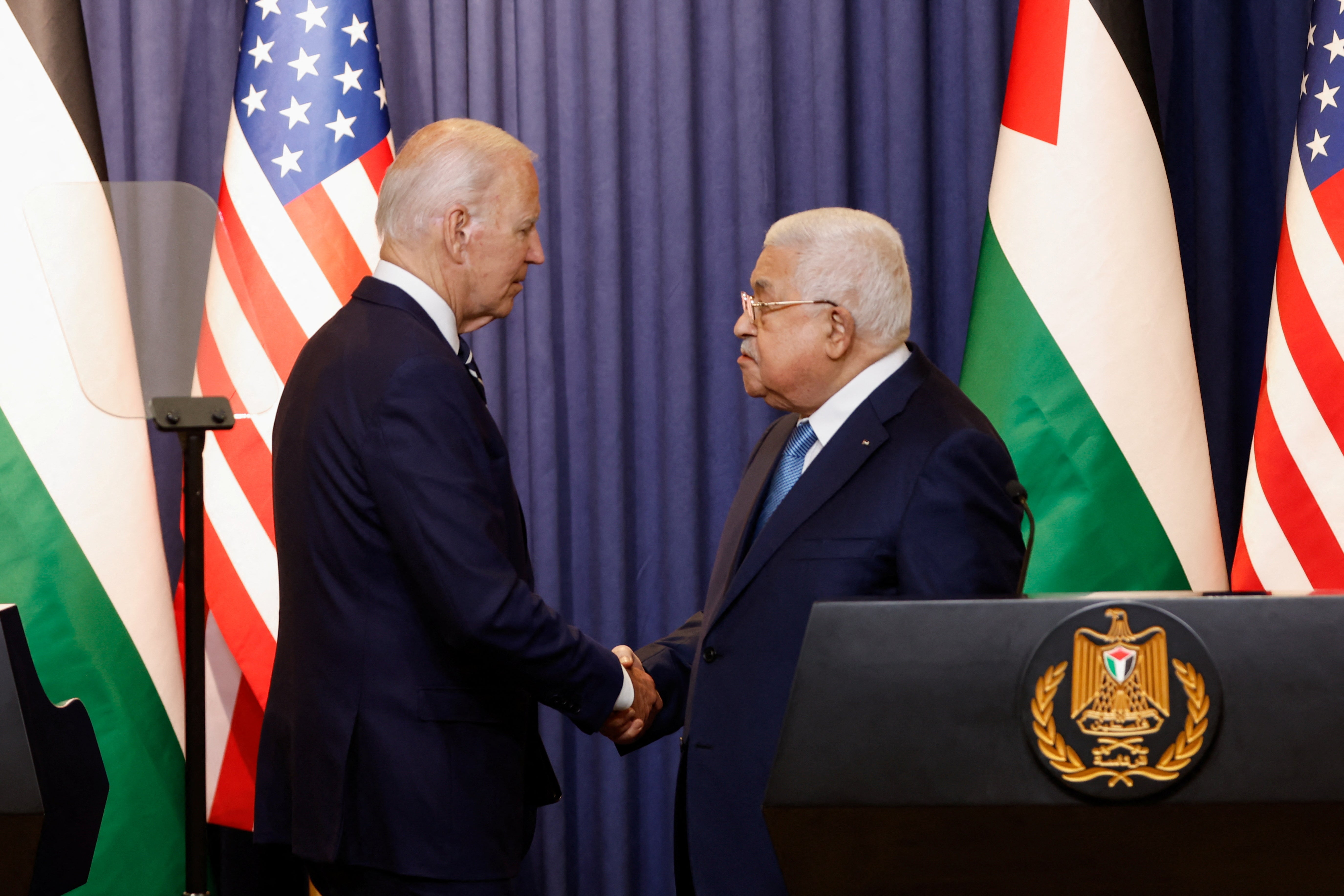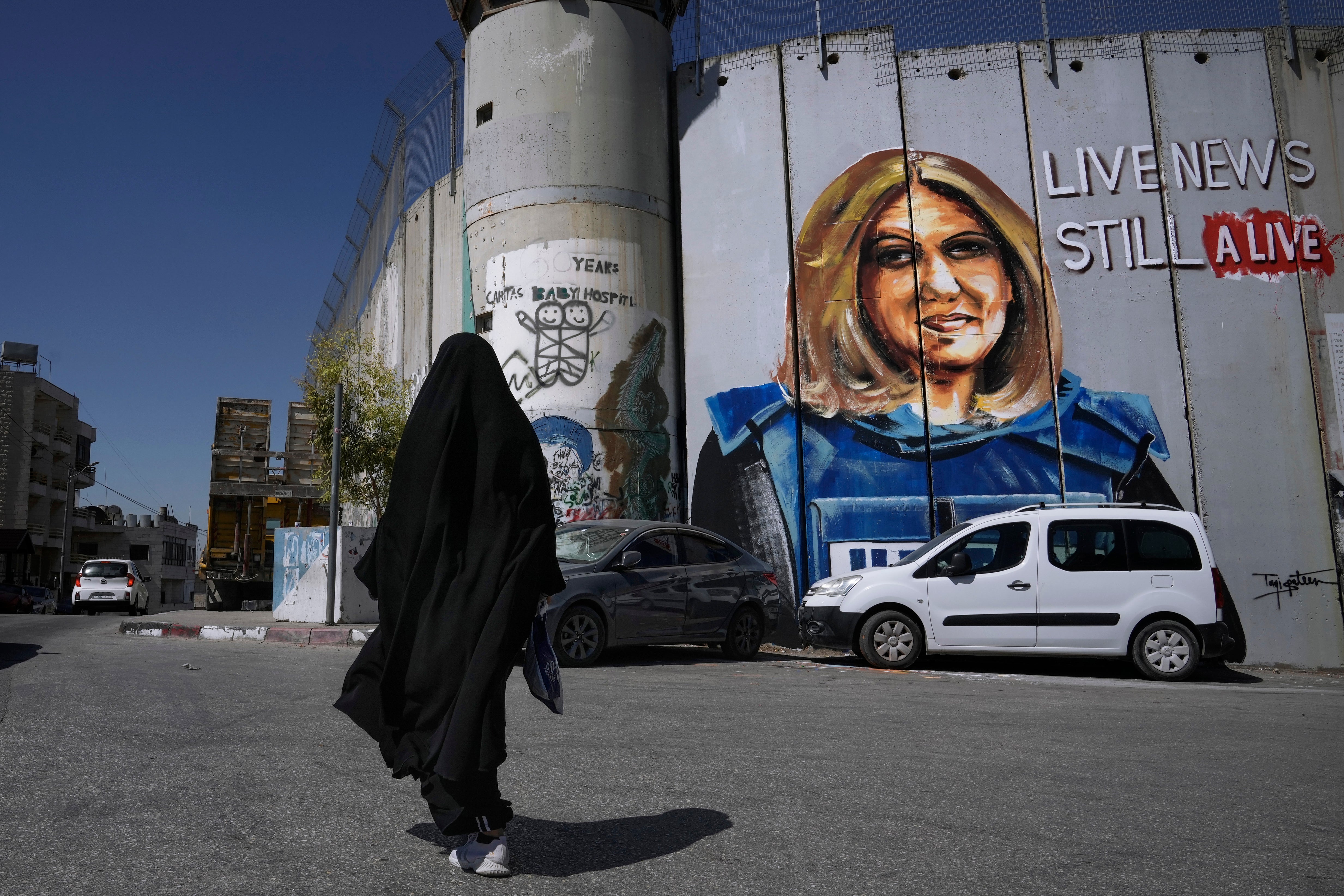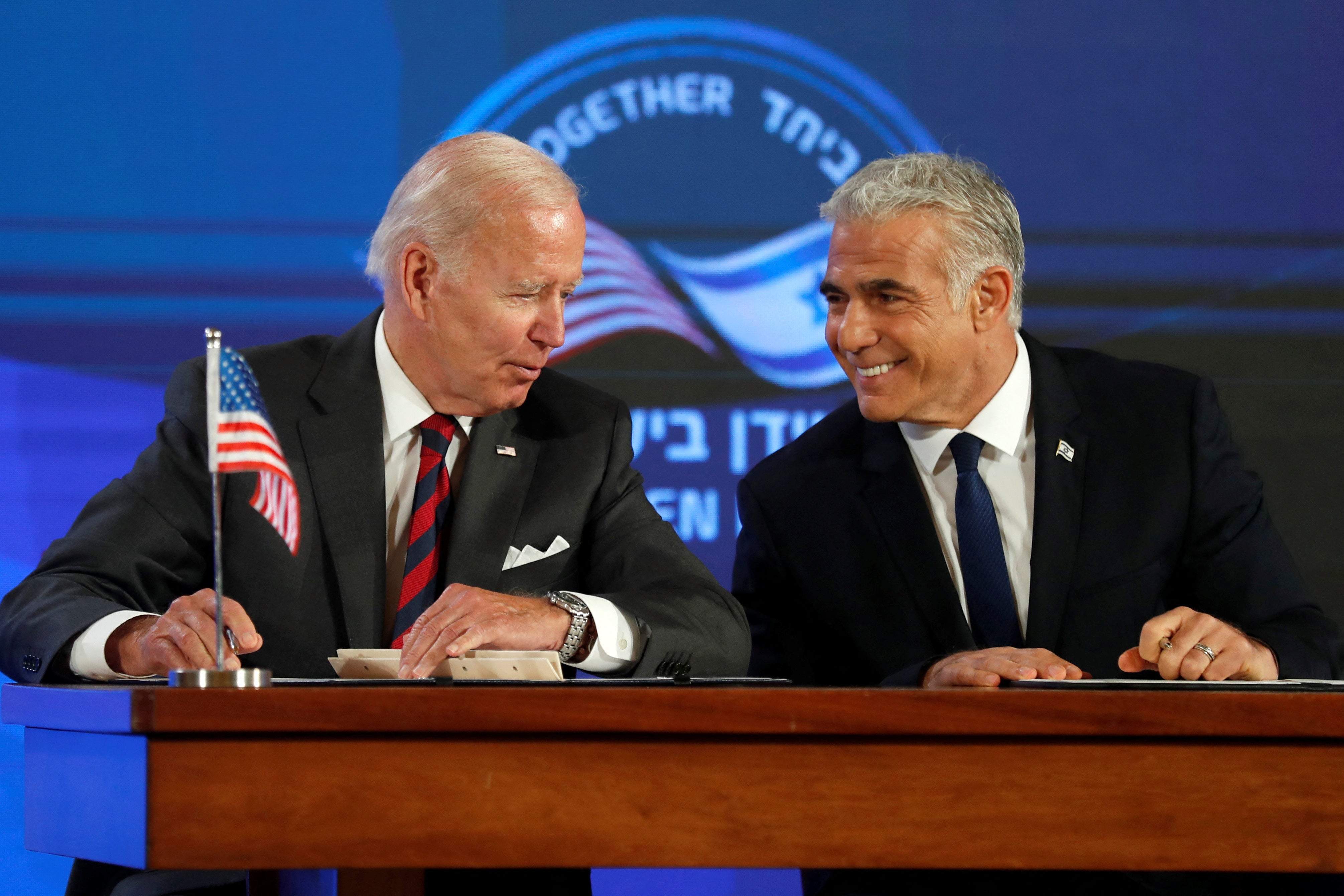Joe Biden told he ‘cannot buy solution’ to Palestine occupation, as he arrives in West Bank
Palestinian protesters have been demonstrating against the US president’s arrival

Joe Biden has been accused of attempting to “buy a solution” to Israel’s half-century-long occupation of Palestine as it was revealed that he would be pledgingmore than $300 million (£250m) in aid.
On Friday, the US president met his Palestinian counterpart Mahmoud Abbas in Bethlehem – in the Israeli-controlled West Bank – where people have gathered to protest his arrival.
Mr Biden is there as part of his multi-stop trip in the Middle East that began in Israel and is to end with his attendance to a summit in Saudi Arabia.
He has planned to announce $201m (£170m) for the United Nations agency for Palestinian refugees, $100m (£85m) – that is subject to congressional approval – for hospitals in east Jerusalem that serve Palestinians, $15m (£13m) for humanitarian assistance, and $7.2m (£6m) for schemes to promote cooperation between Israelis and Palestinians.
The aid package comes with a commitment from Israel to modernise wireless internet access for Palestinians.
The promises of cash would have limited effects on the ongoing occupation and the conflict between Palestine and Israel, said Aaron David Miller, a senior fellow at the Carnegie Endowment for International Peace and former US State Department official.
He added: “You can’t buy a solution to the Israeli-Palestinian conflict. It doesn’t work, because that’s not what drives this conflict.”

Mustafa Barghouti, a veteran Palestinian activist, accused Mr Biden of “trying to marginalise the Palestinian issue”.
“If he does not allow Palestinians to have their rights, then he is helping Israel kill and end the very last possibility of peace,” he said.
In 1967, Israel seized east Jerusalem, the West Bank, and Gaza – a move that led to the exodus of up to 325,000 Palestinians. It has since expanded its land grab that many countries around the world has deemed illegal.
Well-known human rights groups have concluded that Israel’s seemingly permanent control over millions of Palestinians amounts to apartheid.
One of those groups, the Israeli protest group B’Tselem, hung banners in the West Bank ahead of Mr Biden’s visit to protest the segregation.
Israel rejects the allegation of apartheid as an attack on its legitimacy.
Protesters have also demanded justice in the killing of Palestinian-American journalist Shireen Abu Akleh, who was shot dead while covering an Israeli military raid in the West Bank in May.
A US investigation concluded that Israeli troops likely shot her but claimed that the shooting appears to have been unintentional.

While in Tel Aviv, Mr Biden praised Israel for having “shared values” with the US.
Diana Buttu, a Palestinian lawyer and political analyst, said: “The idea of shared values actually makes me sick to my stomach.
“I don’t think Israeli values are anything that people should be striving towards.”
Both Mr Biden and Israel’s caretaker prime minister Yair Lapid said they supported an eventual two-state solution in order to ensure that Israel remains a Jewish-majority state. But Mr Lapid does not have the mandate to hold peace negotiations.

Earlier this week, Mr Biden admitted that a two-state solution to the conflict won’t happen “in the near term”.
The chance of peace talks is likely to be further reduced if Mr Lapid’s government is replaced in the November elections with a right-wing administration that would be more opposed to Palestinian statehood.
The last round of serious peace talks more than a decade ago came to no solution.
Mr Biden is also hoping to bolster the work of the Abraham Accords, a diplomatic process for Arab nations to normalise relations with Israel which began under the presidency of his predecessor Donald Trump.
Later on Friday, Mr Biden is expected to fly to Saudi Arabia from Israel – in an unprecedented move for a US leader after the Saudi government had banned flights between the two countries.
Hours before his flight, the Saudi civil aviation authority announced “the decision to open the Kingdom’s airspace for all air carriers that meet the requirements of the Authority for overflying,” which signals the end of its long-standing ban on Israeli flights over its territory.
In a statement, Mr Biden hailed the decision as an important step that “can help build momentum toward Israel’s further integration into the region, including with Saudi Arabia.”
Additional reporting by Associated Press
Join our commenting forum
Join thought-provoking conversations, follow other Independent readers and see their replies
Comments


Bookmark popover
Removed from bookmarks